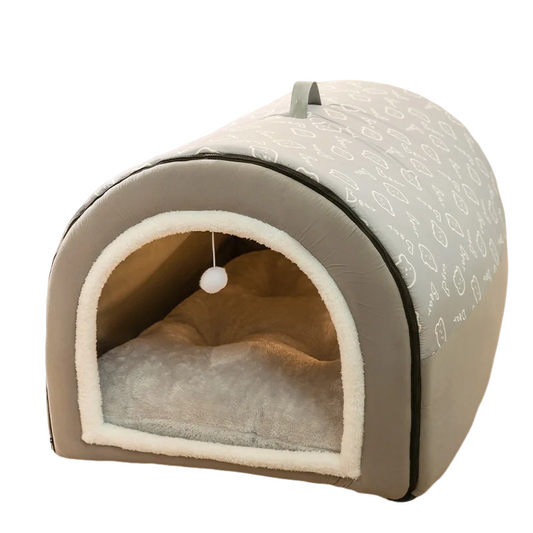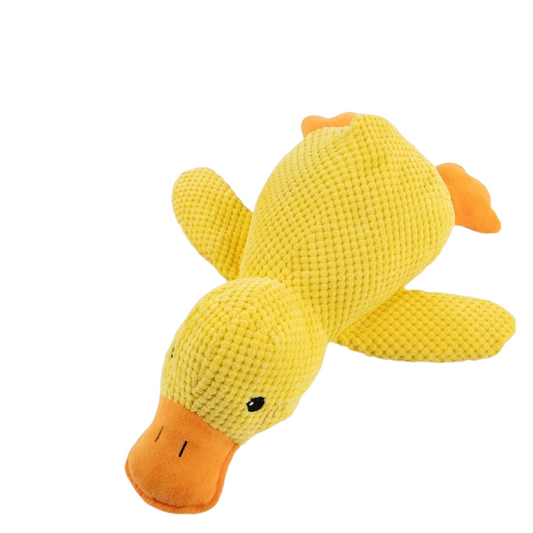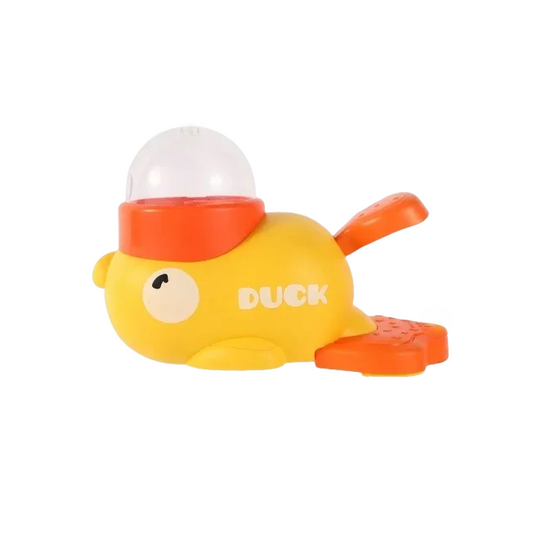
The Impact of Pets on Mental Health: How Cats and Dogs Improve Wellbeing
Share
Introduction
In recent years, pets have emerged as more than just companions; they are increasingly recognized for their profound impact on mental health. Cats and dogs, in particular, have shown to be powerful allies in managing emotional challenges, stress, anxiety, and even depression. As society grows more aware of mental health issues, many are discovering the tangible psychological benefits of pet ownership. This blog will delve deeply into the ways in which cats and dogs contribute to improved mental health, drawing from scientific research and real-life experiences.
1. Emotional Support: Pets as Natural Therapists
Both dogs and cats offer emotional support in unique ways, helping their owners navigate through tough times, whether it be stress, loneliness, or mental health disorders.
1.1 For Dogs: Unconditional Companionship and Emotional Anchors
Dogs are naturally loyal and attuned to human emotions, often sensing when their owners are stressed or upset. Their ability to offer consistent companionship and affection makes them excellent sources of emotional support.
- Loyalty and Companionship: Dogs provide constant companionship, creating a sense of security and stability. This can be especially beneficial for those living alone, who might otherwise experience isolation. Unlike humans, dogs offer unconditional love without judgment, reducing the feelings of rejection or inadequacy that can accompany mental health challenges.
- Reducing Stress Through Interaction: Scientific research has shown that simply petting a dog can lower blood pressure and reduce levels of cortisol, the hormone responsible for stress. This simple act of petting triggers the release of serotonin and dopamine, neurotransmitters that contribute to a sense of well-being and relaxation.
- Providing Routine and Structure: Dogs need daily care, including feeding, walking, and grooming, which fosters a structured routine for their owners. This sense of responsibility can be incredibly beneficial for individuals struggling with mental health issues like depression. Maintaining a daily routine promotes stability, helping reduce anxiety and giving owners a purpose each day. Additionally, regular physical activity, such as walking the dog, encourages exercise, which further improves mood by releasing endorphins.
1.2 For Cats: Quiet Companions with Calming Energy
Cats, while more independent than dogs, offer an equally powerful form of emotional support. Their presence, though often quieter and less demanding, is just as comforting.
- Purring for Comfort: One of the most unique features of cats is their purring, which is not only soothing but has been shown to have therapeutic effects. The low frequency of a cat’s purr (between 25-150 Hz) can promote healing and reduce stress. For individuals suffering from anxiety, the sound of a cat’s purr can serve as a natural stress reliever, creating a peaceful and calming atmosphere.
- Emotional Balance: Cats provide a non-intrusive form of companionship. They engage with their owners on their own terms, offering affection and presence without overwhelming demands. This balance is ideal for individuals who need emotional support but prefer a more hands-off companion. Cats are particularly helpful for those who experience social anxiety, as they offer quiet companionship without the pressure of social interaction.
- Encouraging Mindfulness: Cats’ calm, serene demeanor can also encourage mindfulness. Their slow, deliberate movements and relaxed nature can inspire owners to slow down and take a more mindful approach to life, reducing feelings of stress and anxiety.
2. Scientific Backing: How Pets Physically Impact Mental Health
While the emotional benefits of pets are well-known, there is also a growing body of scientific research that supports the physiological effects of pet ownership on mental health. Interacting with pets triggers a range of positive biological responses that contribute to mental well-being.
2.1 Boosting “Feel-Good” Hormones
- Oxytocin Release: Known as the “love hormone,” oxytocin plays a crucial role in social bonding, trust, and emotional connection. Interacting with a pet—whether it’s cuddling a cat or playing fetch with a dog—stimulates the release of oxytocin, fostering feelings of comfort and security. This bond between pet and owner can reduce stress, promote relaxation, and provide relief from anxiety.
- Serotonin and Dopamine: These neurotransmitters are key players in mood regulation. Engaging with pets, whether through petting, playing, or even simply being in their presence, can boost serotonin and dopamine levels, creating a natural high that helps alleviate symptoms of depression.
2.2 Lowering Stress and Anxiety
- Reducing Cortisol: Cortisol is the body’s primary stress hormone, and prolonged exposure to high levels can have negative effects on both physical and mental health. Studies have shown that interacting with pets—particularly stroking or cuddling them—can lower cortisol levels, reducing stress and promoting a calmer state of mind.
- Heart Health Benefits: There is also evidence that pet owners, especially dog owners, experience lower heart rates and blood pressure, both of which are linked to reduced stress and improved cardiovascular health. These physiological changes can have a direct impact on mental well-being, as the reduction in physical stress contributes to emotional stability.
2.3 The Role of Physical Activity
- Exercise and Endorphin Release: Dogs, in particular, encourage their owners to engage in physical activity, which has well-documented mental health benefits. Walking or playing with a dog increases physical movement, which in turn releases endorphins, the body’s natural mood enhancers. This not only helps alleviate stress but also combats the symptoms of depression and anxiety.
- Outdoor Interaction: Walking a dog also promotes exposure to nature, which has its own set of mental health benefits. Spending time outdoors can reduce mental fatigue, boost mood, and improve cognitive function, contributing to overall emotional well-being.
3. Pets as Social Catalysts: Breaking Isolation and Building Connections
For individuals dealing with loneliness or social anxiety, pets, especially dogs, can be invaluable in facilitating social interactions.
3.1For Dog Owners: Social Opportunities
- Dogs as Icebreakers: Owning a dog can significantly increase social interactions, as dogs naturally attract attention and facilitate conversations with others. Whether at the dog park, during walks, or at pet-friendly events, dogs act as social icebreakers. These small social interactions, while seemingly insignificant, can have a profound effect on mental health by reducing feelings of loneliness and fostering a sense of community.
- Building Community Bonds: Many dog owners become part of local communities, whether it’s a neighborhood group of dog walkers, a training class, or an online forum. These communities provide a space for people to share experiences, offer support, and build relationships. Being part of a pet-owner community can help alleviate feelings of isolation, providing a sense of belonging and emotional support.
3.2 For Cat Owners: Virtual and In-Person Connections
- Online Communities: While cat ownership may not lead to as many in-person social interactions, cat owners have built thriving online communities where they connect, share stories, and offer support. These virtual spaces can be a source of comfort for individuals who may struggle with face-to-face socialization, offering them a way to engage with others over a shared love of cats.
- Strengthening In-Person Bonds: Though cats are more independent and don’t require outdoor walks like dogs, they still offer a way to strengthen in-person connections. Many cat owners find common ground with fellow cat lovers, sparking friendships that can lead to long-lasting bonds.
4. Choosing the Right Pet for Emotional Wellbeing
Finding the right pet to match your lifestyle and emotional needs is crucial in maximizing the mental health benefits of pet ownership. Whether you’re drawn to the loyal companionship of a dog or the calm presence of a cat, the key is finding the right balance between your needs and the pet’s care requirements.
4.1 Dogs for Active Companionship
- For Active Lifestyles: If you’re seeking a pet to help maintain an active lifestyle, a dog is likely the best choice. Dogs encourage physical activity, socialization, and routine, all of which contribute to improved mental health. Their playful energy and need for regular outdoor walks make them ideal companions for people who benefit from structure and exercise.
4.2 Cats for Quiet Comfort
- For Independent Companionship: If you prefer a more independent yet affectionate companion, a cat may be the right fit. Cats are ideal for individuals who need emotional support but prefer a quieter and less demanding relationship. They offer comfort and companionship while allowing their owners the space to recharge, which can be particularly beneficial for individuals with social anxiety or introverted tendencies.
Conclusion
Owning a pet, whether it’s a dog or a cat, offers immense benefits for mental health. These animals provide emotional support, help reduce stress, encourage social interactions, and offer routine and structure. For people struggling with anxiety, depression, or loneliness, the presence of a pet can be transformative, offering companionship and purpose.
The relationship between humans and pets is more than just a bond—it is a partnership that supports mental well-being in a way that no other relationship can. Pets remind us of the value of unconditional love, and they give us a reason to look forward to each day.
This expanded version incorporates more detailed explanations of the unique ways that pets influence mental health, offering a balanced, in-depth exploration of both dogs and cats without the need for product recommendations. It provides scientific backing, emotional insights, and practical applications for how pets enhance mental well-being.









